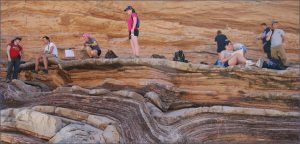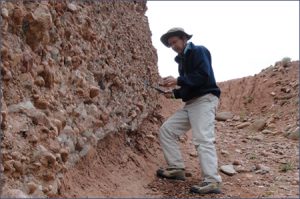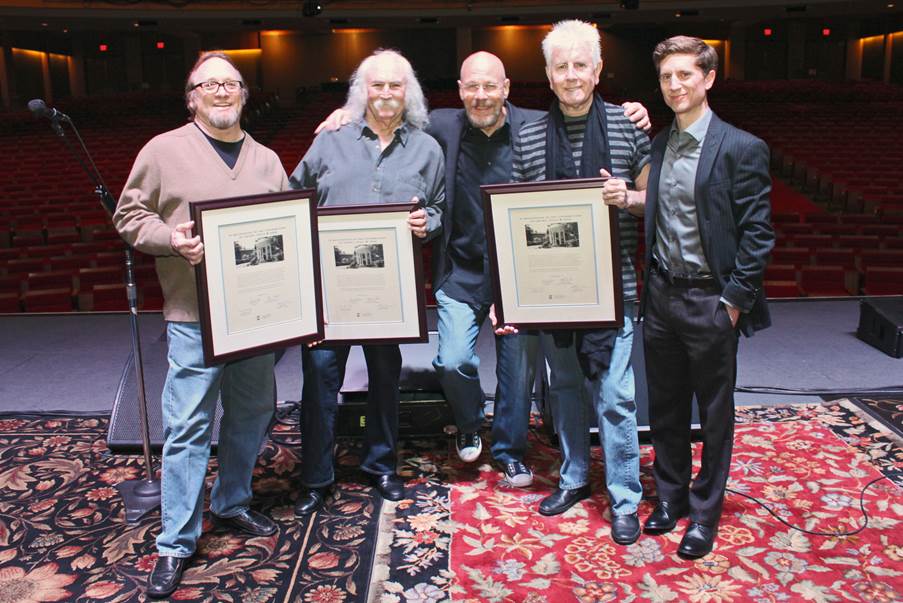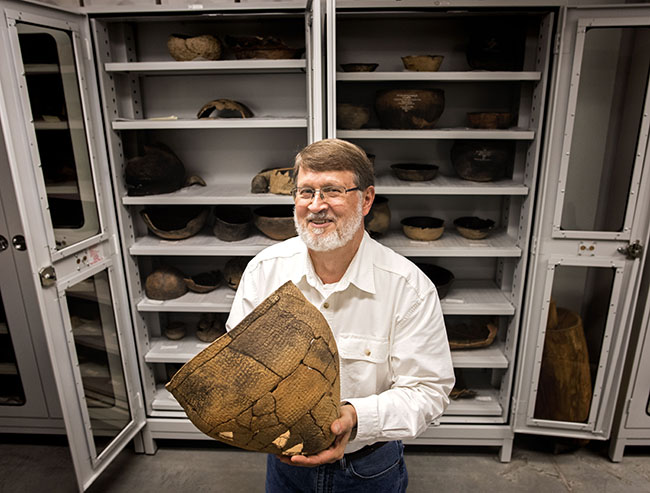
In introductory geology, Kevin Stewart tells his students that we know more about the things millions of miles above our heads than a mile below our feet.
Of course, the atmosphere is transparent and rocks are opaque. But Stewart makes an important point for students who love to study science and the earth. “There’s still a lot we don’t know about how the earth works,” he said.
The drive to discover inspires students, he said, and is one of the reasons the Department of Geological Sciences, where Stewart has been on the faculty for 27 years, is growing in popularity.
“A lot of the things students are reading about in the newspapers – natural hazards like earthquakes, flooding, beach erosion and climate change – need to be better informed by good science,” he said. “There’s a lot of opportunity here to make a contribution to scientific issues with direct societal impact.”
It’s often an introductory geology course that piques students’ curiosity, Stewart said. Course evaluations are filled with comments from students saying that they never thought they’d become so interested in geology, much less seek a degree or minor in it.
It’s something Stewart understands. Growing up in Detroit, he wasn’t interested in the outdoors, but he loved science. At the University of Michigan, he set out to major in physics.

That all changed in the summer after his first year when he traveled to Oregon to work as a waiter at the Oregon Caves National Monument.
“I started going on hikes because that’s what we would do for fun,” he said. “I’d never really been to mountains or caves, and I became fascinated by how they got there. I was obsessed with trying to understand it.”
Back at school, he enrolled in an introductory geology course and found it a way to study hard science, be outdoors and learn new things about the earth.
As Stewart’s love for geology expanded, so did the desire to pass it on, and he soon found teaching geology as meaningful as field research.
“Undergraduate teaching is a huge part of what I do,” said Stewart, who has won teaching awards from both Carolina and the University of California at Berkeley, where he earned his Ph.D. “I love it, and it’s something I spend a lot of my time on.”
In addition to his work with graduate students, Stewart teaches GEOL 101, the general introductory geology course, and a smaller introductory class for science majors as well as classes at the 200 level.
In “Geology of North America,” Stewart has taken students in recent years on a spring break trip to Big Bend National Park in Texas. Often, he said, these classes bridge a student from being interested in the topic to considering a career in it.
“We go out to Big Bend and the students, many of whom have only had an intro class, collect data and measure things and make presentations at a geological research symposium that we have in the department. It’s pretty primitive camping in some places, and they really see how geology is done,” he said.
Many students start to see the possibilities in such a field component where they experience the science beyond books and photographs, Stewart said.
“I have to believe that spending a week camping in Big Bend, where the only technology is a GPS to figure out where we are, and we’re looking to see if rocks contain marine fossils or terrestrial fossils, is sometimes a light bulb for them,” he said.
And Carolina’s geology graduates are getting jobs, Stewart said. Some are employed by state and federal agencies that deal with hazards, some by companies that deal with environmental or water issues.
“I know it sounds cliché, but it’s true: I get really motivated by seeing our students get excited about something,” Stewart said. “I feed off that excitement.”
By Courtney Mitchell, University Gazette


